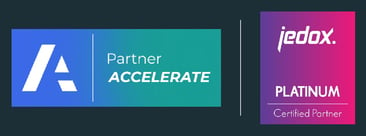If you're exploring a new digital planning solution, you're likely considering a Request for Proposal (RFP) to help you find the right software integrator. It’s a familiar route — one that promises fairness, transparency, and structure. But if you’ve been through it before, you know it doesn’t always deliver the outcomes you expect. When managed well, the RFP process can set the stage for a successful long-term partnership. But when it’s rushed, vague, or used as a formality, it can waste time, undermine trust, and lead to disappointing results.
Here’s what you need to consider — and what might help you get more value from your RFP process.
What You Should Expect from a True Partner
You want a partner who shares your values — one who’s committed to integrity, transparency, and long-term success, not just ticking boxes. You also want someone who takes the RFP seriously, but won’t hesitate to step back when the conditions aren’t right for a successful implementation.
Choose Vendors Who Choose You Too
You’re not just looking for any response — you're looking for one from a partner who genuinely believes they can add value to your project. That means you want your process to be fair, structured, and well-informed. If your RFP is missing key details, or feels like a checkbox exercise after a decision has already been made, you risk deterring the kind of partners you’re hoping to attract.
Look for Realism, Not Just Optimism
You want proposals that are honest and grounded. You need accurate scopes of work, clear pricing, and realistic timelines. Be wary of bids that seem too good to be true — underquoting may win the bid, but it rarely delivers the outcomes you expect. The right partner will care just as much about delivering what’s promised as you do — because their reputation (and yours) is on the line.
Protect the Whole Ecosystem
When a project fails, it reflects poorly on everyone — including you and your software vendor. You need a selection process that sets everyone up for success, not just your chosen implementation partner. That means aligning everyone early on: your internal team, your potential partner, and your technology provider. You’re not just choosing a vendor — you’re forming a team.
As one technology partner put it:
"In my experience, Profit& consistently approaches RFPs with a level of professionalism and integrity that sets the tone for successful projects. They take the time to understand client needs, they ask the right questions, respond with clarity and reliability, and focus on building long-term value. When Profit& is involved, the process runs smoother, and the outcomes with many happy customers, speak for themselves." - Leonardo Gambini, Alliances Director, Anaplan
Avoid Needing to be Rescued
You don’t want to be the one calling for help mid-implementation. Yet, too often, that’s what happens when the RFP process fails to surface the right partner. The good news? You can avoid this. A well-managed RFP process is one of the most powerful tools you have to get your implementation right from the start.
Consider the Total Cost, Not Just Daily Rates
Don’t let a low day rate blindside you later—ask each bidder not only “What’s your rate?” but “How many days will this take, and why?” Insist on a breakdown of days by role (senior vs. junior), outline how out-of-scope work and schedule overruns are priced. By evaluating team composition, experience levels, risk-pricing for delays or change requests, and total cost of ownership side by side, you’ll see which partner truly delivers value for every euro spent.
Your Guide to Running a Strong RFP Process
An RFP should do more than gather quotes — it should give you confidence. It should help you uncover the partner that not only can deliver, but who truly gets your business, your goals, and your constraints. Here's how to get there:
Best Practices
Define Your Requirements Clearly
You need vendors to propose meaningful solutions — but they can only do that if they understand your objectives, scope, and success criteria. The more clarity you provide, the better their proposals will be. Make sure you fully describe your desired outcomes, processes, roles and responsibilities, input data and data sources, functional and non-functional requirements.
Engage Stakeholders Early
You need support from the project sponsor to get everyone aligned. By involving different departments early, you ensure the requirements reflect the full picture — not just one team’s perspective.
Communicate Transparently
Vendors need to feel like trusted partners. If you provide timely answers and keep lines of communication open, you’ll get better proposals — and better engagement throughout.
Use Balanced Evaluation Criteria
Cost matters, but it shouldn’t be your only yardstick. You’re looking for capability, experience, implementation fit, and long-term support. Create a scorecard that reflects what really drives success.
Set Realistic Timelines
Rushing helps no one. You need time to draft the RFP properly, review proposals thoughtfully, and engage meaningfully with your shortlisted partners. The more time you invest now, the less pain you'll feel later.
Offer Feedback
Even if a vendor isn’t selected, you want to keep the door open for future collaboration. Constructive feedback shows respect and helps everyone improve.
Common Pitfalls to Watch Out For
Over-Focusing on Price
It’s tempting to go with the lowest bidder — but it rarely ends well. You want value, not just savings. The right partner might cost more up front, but they'll cost you far less over the life of the project.
Vague Requirements
If your RFP lacks detail, you’ll get responses that miss the mark. Call out any complexity in data transformation, adaptation, manipulation, or standardisation across your systems and the future solution. Spell out exceptions to your standard processes or calculations (e.g., unusual allocation rules, bespoke currency conversions, or one-off reporting requirements). Take the time to be clear. It’s worth it.
Limiting Vendor Creativity
You don’t want to tell vendors exactly how to solve the problem — you want them to show you what’s possible. Give them space to bring ideas and innovation.
Lack of Internal Alignment
If your own team isn’t aligned, your process won’t be either. Make sure everyone is on the same page before you engage the market.
Using RFPs as a Formality
If your mind is already made up, be honest. Issuing an RFP just to follow process wastes time and erodes trust. You want a reputation for fairness — it pays off long-term.
In Summary
You’re not just running a procurement process — you’re laying the foundation for a successful and transformative project. A thoughtful, transparent RFP process helps you find a partner who shares your values, understands your needs, and is ready to deliver real impact.
If that’s what you're aiming for, you’ll find that partners like Profit& are ready to engage — with open communication, realistic expectations, and a shared focus on long-term success. And if you're preparing an RFP now, we’d be happy to explore if we’re the right fit.
Start strong — and set your project up for success, from day one.







